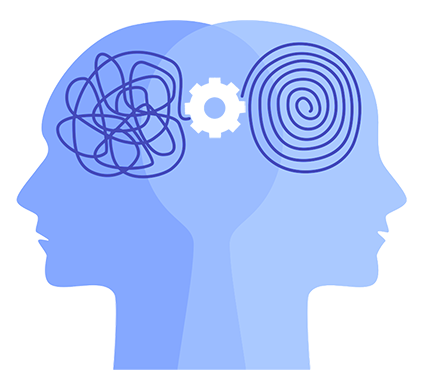Individual counselling sessions are designed to be deeply client-centred, ensuring that each session is tailored to meet the unique needs and goals of the client. This approach prioritises the client’s perspective, values, and experiences, fostering a supportive and empathetic environment where clients feel heard and understood.
Grounded in evidence-based, trauma-informed therapy, therapeutic interventions used are supported by scientific research and are sensitive to the impact of trauma on an individual’s mental health. Trauma-informed care recognises the widespread impact of trauma and understands potential paths for recovery, emphasising safety, trustworthiness, and empowerment.
Integrated therapies include:
Acceptance and Commitment Therapy (ACT): This therapy helps clients accept their thoughts and feelings rather than fighting or feeling guilty for them. ACT encourages individuals to commit to actions that align with their values, promoting psychological flexibility and resilience.
Dialectical Behavior Therapy (DBT): DBT focuses on teaching clients skills to manage emotions, cope with stress, and improve relationships. It combines cognitive-behavioral techniques with mindfulness practices to help clients achieve a balance between acceptance and change.
Mindful Self-Compassion (MSC): MSC involves teaching clients to be kind and understanding toward themselves during times of difficulty. This practice helps reduce self-criticism and fosters a sense of inner strength and emotional well-being.
Motivational Interviewing Motivational Interviewing (MI) is a client-centered, directive counseling approach designed to enhance an individual’s motivation to change by exploring and resolving ambivalence. Developed by clinical psychologists William R. Miller and Stephen Rollnick in the early 1980s, MI is particularly effective in addressing behaviours related to substance abuse, health management, and other areas where change is desired.
Focusing is a psychotherapeutic process developed by Eugene Gendlin, a philosopher and psychotherapist, in the 1960s. It is a method of self-inquiry that helps individuals access and articulate their inner experiences, often referred to as the “felt sense.” This approach is particularly useful in person-centered counseling and can be integrated with other therapeutic modalities.
Somatics refers to a field within bodywork and movement studies that emphasizes the internal physical perception and experience of the body. It is derived from the Greek word “soma,” meaning “body,” and focuses on the body’s internal sensations and the mind-body connection. Somatic practices are used in various therapeutic contexts to promote physical and emotional healing, enhance self-awareness, and improve overall well-being.
By integrating these therapies, it’s a holistic approach that addresses the complex needs for each individual client. Each session is an opportunity for clients to explore their thoughts and feelings in a safe space, develop coping strategies, and work towards meaningful personal growth.
Sessions are typically 50 minutes and can be online or in person in Croydon, VIctoria, see below to book.
- Health fund rebates are available to clients with coverage for extras*
- Support for NDIS participants with plan management, self management and combination plans

Telehealth Counselling sessions $120

In Person Counselling sessions $140

